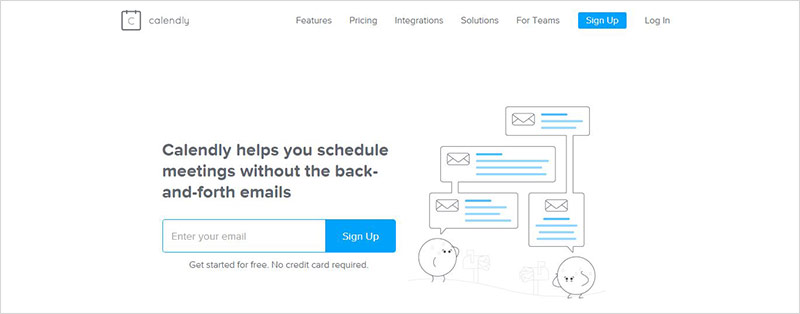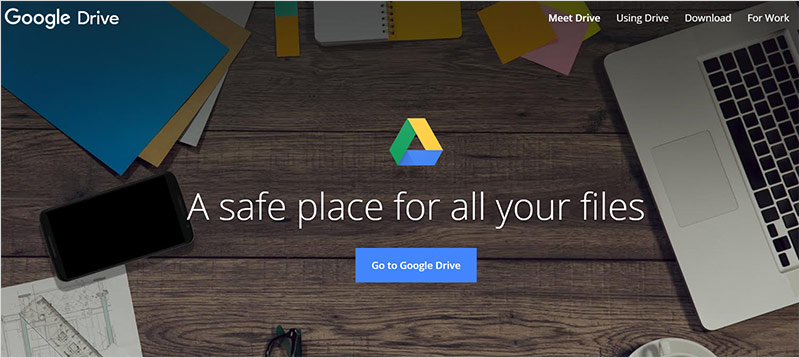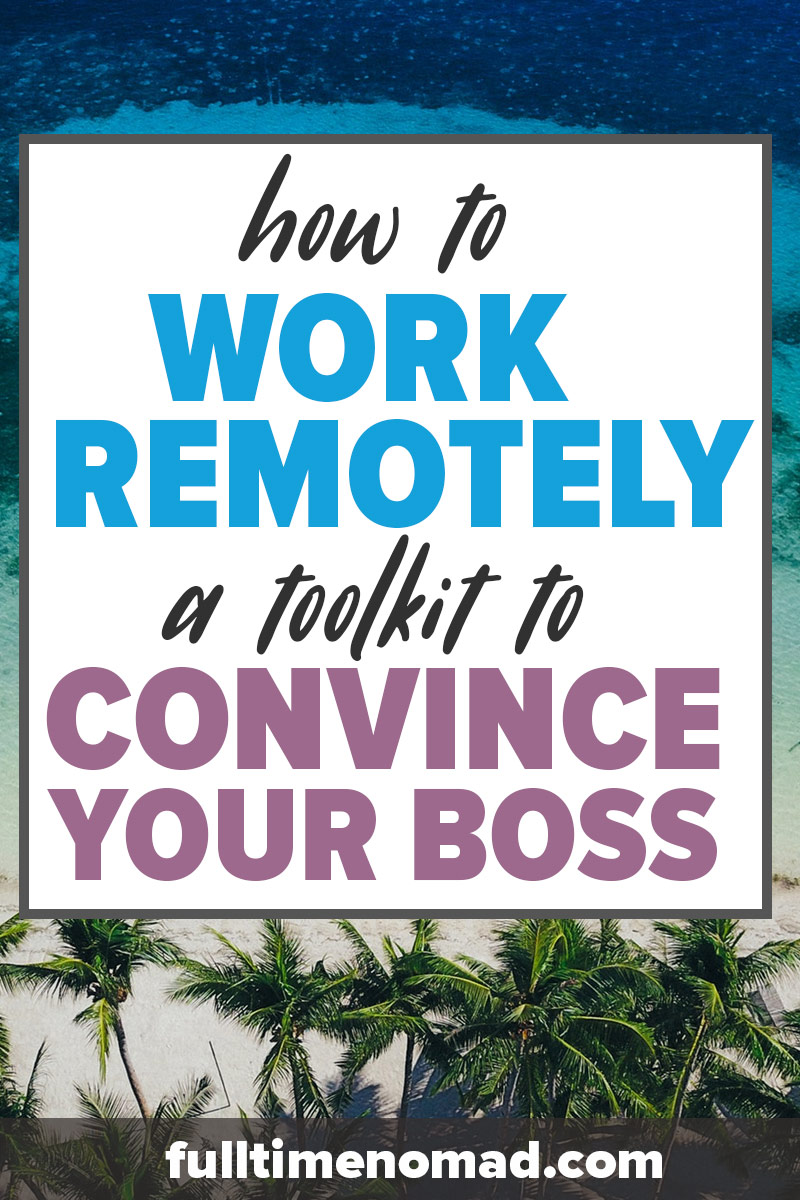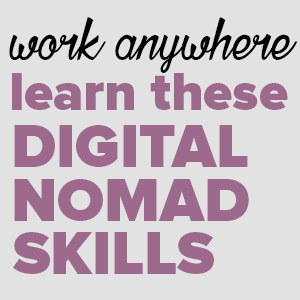There are a number of different ways you can work remotely.
You could start freelancing, you could set up a blog or you could even work a regular job but simply do it remotely.
In this article, we want to discuss how to transition into remote work but still keeping your current job.
More and more people are wanting to work remotely but are unsure how to approach it with their boss. This toolkit is designed to help you show your boss that you have put a lot of thought into this and you know how to work remotely.

LEARN HOW TO WORK & TRAVEL THE WORLD FULL TIME
Download our FREE guide in seconds!
By signing up, you are agreeing to receive periodic emails from Fulltime Nomad. No spam. Only the good stuff.
You want to show them that:
- Your role doesn’t require you to be in the office.
- You can be just as, if not more, productive while working remotely.
- You have the tools you need to work outside the office.
- You’ve thought of every “what if…?” scenario.
- You can travel, work from anywhere and still get the job done.
- You’re prepared.
Below you will find:
- A checklist to help you prepare and put together a proposal on how to ask the boss to work remotely.
- An email template
- Remote work tool suggestions you can use to convince your boss you can be a productive digital nomad, even if you’re in a different part of the world and traveling.
*This post may contain affiliate links. If you click on them and purchase something we get a small percentage of the sale. More info here*
Related posts:
- Best Travel Jobs: 7 Jobs That Allow You To Travel The World
- Productivity for Digital Nomads: 10 Habits to Get Work Done on The Road
How to Work Remotely: A Checklist For Getting Started
Use this checklist to prepare yourself BEFORE you approach your boss.
Consider all of these factors as you will need to present it in your proposal to your boss to make a compelling case.
1. Assess your role
Take a good hard look at your role and think about your responsibilities. Ask and answer questions such as:
- How much time do each of your tasks take?
- Will it be more difficult to complete certain tasks remotely?
- Can you work from a different country/ time zone?
- Do you have to supervise others?
- Is most of your work on the phone/ via email/ face-to-face?
2. Have a specific plan
Having assessed your role, now you need to come up with a plan on how to work remotely – especially if you plan to work while you travel. Think about things like –
- What will your work schedule look like?
- What days will you work?
- Where will you work from? (apartment/ coworking space/ coffee shops)
- What tools will you use to stay connected and productive (see the Digital Nomad Toolkit below)
3. Outline the benefits
How is working remotely going to be beneficial for you and your company? What do they stand to gain? Back up your argument with research where possible.
- Explain that remote workers are more productive.
- Remote workers are less likely to quit.
- Less overhead costs for the business.
4. Address potential issues and concern
You know your job and the company. Think about any issues and concerns they might have and come up with a solution so they know you’re prepared.
For digital nomad wannabes, the concerns usually revolve around productivity and getting work done while travelling. Don’t focus on the travel but instead focus on how you plan to address common work productivity concerns. Think about things like:
- What happens when you’re in a different time zone?
- What about data security?
- How will you communicate with colleagues/managers?
- How will you remain accountable?
- How will you collaborate with others?
5. Propose a trial period
If remote work is new for your company they may be more resistant to it than others. Start by proposing a trial period so you can both get a taste for it. The exact specifics of it will depend on what you can negotiate with your company but you could consider:
- Work remotely from home 1-2 days a week
- Working from a different city/country for 1 week
6. Educate yourself
Working remotely has a bit of a learning curve. Learning how to work remotely well and proving to your boss that you can do it is YOUR responsibility.
- Focus on building a productive routine.
- Give yourself a dedicated space to work.
- Set yourself specific work hours to make sure you’re getting work done.
- Travelling while you work is a dream but don’t get so excited about the travel, that you forget all about the work.
- Remember to prioritise work.
As you go through each of these points, write down all of your thoughts and answers. You will need to refer this in your email when you propose to work remotely to your boss.
Email Template: How to Ask to Work Remotely
Use this email template to break the news to your boss. The sections in bold below will need to be personalised by you as relevant to your situation. So as long as you retain the basic elements, feel free to be creative.
Remember: focus on work, not on your travel.
Hi {Boss’s Name},
I have been employed by {xyz company} for X years and am very committed to my work.
However, of late I have found myself wanting more of a work-life balance and this includes a desire to travel more. I have been researching ‘digital nomads’ (people who work online while they travel) and I believe this could be the work-life balance I’m looking for.
So, I would like to formally request you to consider moving my role to a remote one. I would continue working five days a week and we can discuss availability and meeting times as required.
I believe I can effectively carry out my tasks, as a remote worker without it affecting my productivity or output in any way.
I accept that working from a different country may be a concern for you. So, in order to make sure my ‘digital nomad’ status doesn’t affect my work, I have formulated the following plan of action, along with suggestions for tools I would use to make sure I can continue to collaborate and communicate with the team.
{insert plan here, addressing common issues and concerns, how you will tackle your responsibilities and what tools you plan to use}
I understand this is a big decision and one that requires further thought. I believe the shift to remote work can be beneficial for both of us.
{insert 2-3 benefits here}
Please know, that my work is my number one priority. Being in Thailand {replace with your destination} will not affect my ability to complete and deliver work or collaborate with my teammates.
I propose that we start with a trial period of 30 days, where I work from home 2 days a week. {modify as necessary, depending on what will work in your situation} This will help us both assess the pros and cons of remote work. At the end of the trial period, we can discuss whether or not it is viable for {xyx company}.
I appreciate your consideration of my request and would love to set up a meeting so we can discuss this further, in person.
I look forward to hearing from you.
Thank you.
{Your Name}
The Ultimate Digital Nomad Toolkit For Working Remotely
And finally, remember that there are plenty of tools out there to help make the transition to digital nomad life and remote work, a smooth one.
Below is a complete list of resources, productivity tools and systems to help you learn how to work remotely effectively – from anywhere in the world.
Hardware Basics
These are some of the basic hardware items you should have if you want to travel the world while you work. Not all of them are essential, but a laptop that never lets you down is a MUST.
- A reliable, lightweight laptop.
- Headphones.
- Smartphone (unlocked).
- A mouse
- External hard drive
- Travel power adaptor
- A laptop stand (optional, but good for ergonomics)
Project Management Tools
These tools will help you stay organised with your work and is especially useful if you’re working with a team.

Calendars & Scheduling
Don’t let time zone differences get in the way of scheduling meetings. These tools are super handy for remote working digital nomads.

Time Management
Track your time and manage your time better with these tools. Also handy if you need to provide reports of what you’ve been working on.

Cloud Storage
Share and collaborate with your teammates by storing all your work in the cloud. These are the two most common tools for remote workers.

Backup Services
Prepare for the worst. Back up all your work regularly with one of these tools so just in case something happens to your laptop while you’re travelling, you’ve got your own back covered.

Data Security
Different countries, different coffee shops or coworking spaces, different WiFi connections – things will be changing but you’ve got to keep your data safe at all times. Consider these tools.
Communication Tools
How will you communicate with your team outside of email?

Preparing yourself to work remotely effectively without any interruptions will give you an edge when you approach your boss to ask to be allowed to work remotely. So if you are truly interested in this kind of life, do your homework and be fully prepared.
Good luck and feel free to contact us if you have any questions!
Have you been thinking of asking your boss to allow you to work remotely? What has stopped you from doing it? Let us know in the comments sections.

Written by

Fulltime Nomad
Fulltime Nomad is your passport to saying no to normal, and yes to a life of unlimited travel. Founded by Radhika & Johnny, this blog will help YOU take that big scary first step towards building your own freedom lifestyle. Are you new? Start here.













